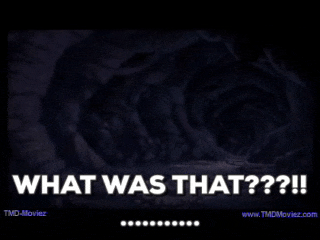Let’s face it.
The 2016 presidential campaign is the laughing stock of both American and international politics. There’s something right and wrong with each and every one of the candidates in both the Republican and Democratic parties, but of course, some elements of every candidates’ platform stands out to a certain demographic, most notably, the American youth being attracted to Bernie Sanders and his ideas for the future of the United States.
Politics, by nature, is the terrace for disagreement, debate, and disaster. The minute the names “Trump” or “Sanders”, are heard, it’s like the scene from Lion King One-and-a-half:
I want to make something crystal clear before I continue: I am not going to be sharing my personal political views (as it should have been implied in the headline of this article) nor am I going to be criticizing any political affiliation or belief. If this is the type of article you were expecting, you have my blessing to click out of it and carry on with your day.
Will I be bashed on for having this article uploaded, anyway? Absolutely.
Why will that happen? Because the word “politics” is in the headline.
We’re all aware of the fact that the political world is an incredibly sensitive one. If there is a certain issue that one is particularly passionate about, of course they will do whatever it is that they deem necessary to promote awareness of it, as well as ensure that whatever they believe in is executed. If another individual has an opposing point of view, then the other will likely become offended, and even fight back and get defensive. Because so many issues are subjectively considered touchy and sensitive, different people get offended by different things, thus causing politics to become holistically sensitive, and provoking people with opposing views to refuse to listen to other perspectives.
If you google “politics”, the first result that pops up is that it is “the activities associated with the governance of a country or other area, especially the debate or conflict among individuals or parties having or hoping to achieve power”. In simpler terms, it is the path to power via various national and international socioeconomic issues.
Being among arguably the most influential and passionate demographic in the United States, the youth, the discussion of foreign policy, economics, social issues, and other topics addressed in candidates’ political campaigns is the breeding ground for disagreement. The overwhelming majority of college students are "feelin’ the Bern", and have pledged full allegiance to Bernie Sanders’ platform. Moreover, several of the white elderly have set their sights on Donald Trump, and many women have decided on Hilary Clinton.
The problem with modern politics is that it’s really not much about politics at all: it’s more of a competition about who can gather the most support among as many groups of people as possible. Sure, in order to take office, one needs to gather up the majority of the votes, but let’s pull that apart for a moment: how many eligible voters are actually voting?
Quick interjection for some stats – in general elections since 1960, average voter turnout has been 51.8% (The American Presidency Project). Think about that: just over half of the eligible voters in the United States are casting their votes, and the remainder of eligible voters are either left uninformed, disinterested, and/or indifferent. So the everlasting question is, how on earth do is it possible to get the 48.2% to vote?
This year’s presidential election is projected to generate a voter turnout between 33 and 49%, an American all time low (Real Clear Politics). Voter turnout has never been this low, and here’s the reason why: as stated before, American politics is inarguably the laughing stock of the world because truth be told, politics aren’t really politics anymore. It’s more of a game of large-scale checkers, where each candidate in their respective party tries to devalue as many elements of their opponent by any means possible to ensure that they come out on top. Candidates care much less about the economic, social, and political stature of the United States, and more about their personal political capital and fiscal gain.
To reiterate, politics of the modern age is on the path to becoming nothing more than a social game. It’s progressed from the desire to improve the country and truly make it the best country in the world, to a mission to beef up a resume and gain publicity.
I want to clarify that this is not to say that the presidents of the United States in the last twenty years have not done anything while in office (because take a look at Obama: in his two terms, Osama bin Laden was assassinated and gay marriage was nationally legalized. Pretty damn productive in my book).
The big issue of the 2016 election is that although there is no such thing as a perfect candidate, each candidate displays highly controversial issues, arguably more than any of the other past candidates in previous elections. Two of the candidates are stamped with scandals and widely unaccepted views on social issues, one comes off as a boisterous and pompous individual, and the other poses the idea of democratic socialism.
Interesting combination of candidates, right?
So the question still remains, why am I apolitical?
Although I am an incredibly proud American and am immensely blessed to be a citizen of a country where I am allowed to express myself in any way that I please, I believe that the United States political system has fallen short and is slowly slipping into failure, and it is almost indisputable that little to no political decorum has been maintained in the last few decades.
Why am I apolitical?
Because there is yet to be anyone that sets publicity, media, and fame aside, and runs for the sake of wanting to make the United States a better place, not because they want their faces on every magazine and their names on every television channel.






















